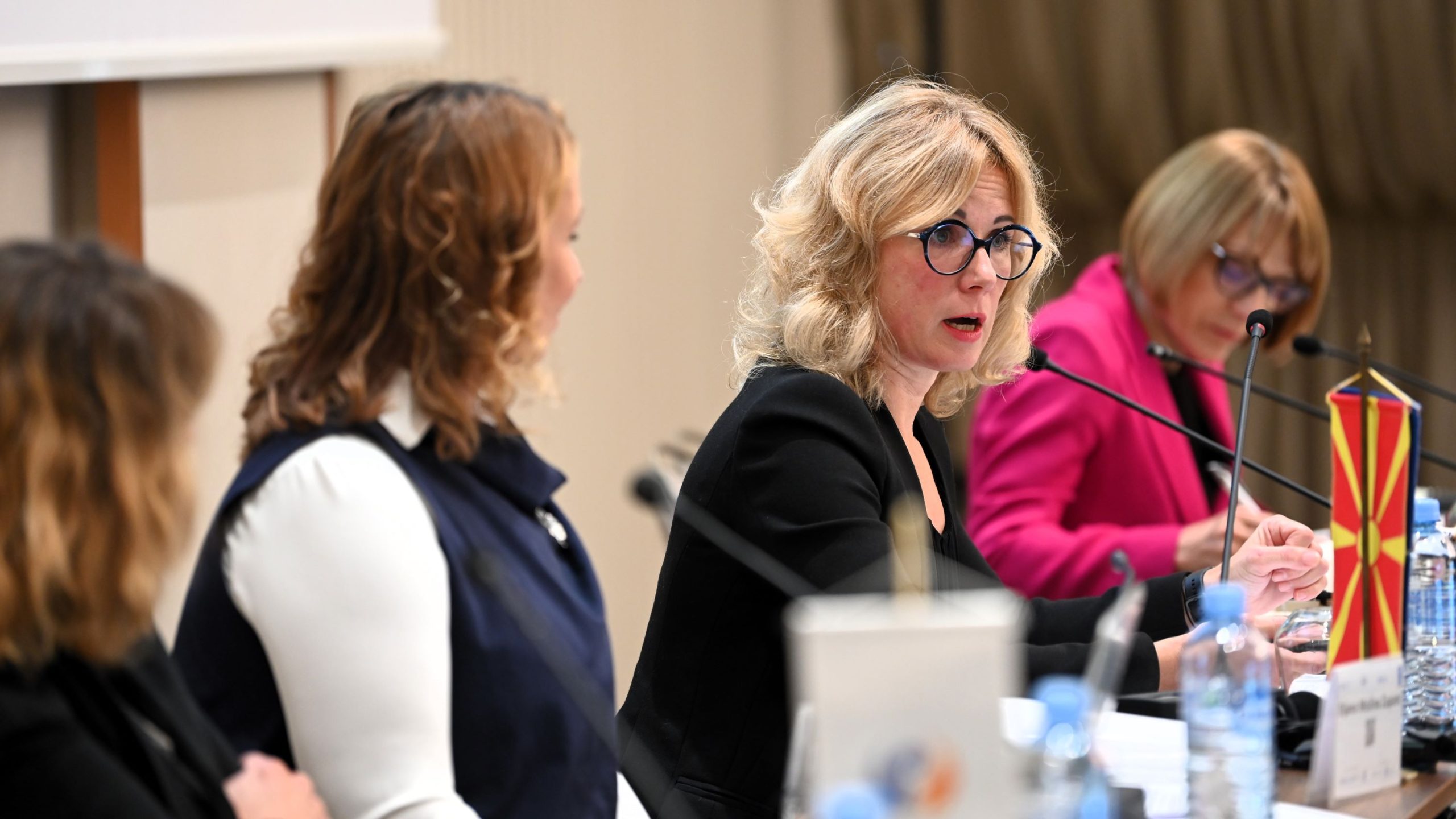Deputy Ombudswoman Dijana Kesonja and Adviser to the Ombudswoman Maja Hasanbašić participated in a regional conference dedicated to the role of ombuds institutions and national human rights institutions in protecting the right to a clean, healthy, and sustainable environment. The event was held from 19 to 21 November 2024 in Skopje, organized by the Ombudsman Institution of North Macedonia in cooperation with the United Nations Development Programme (UNDP), the Office of the High Commissioner for Human Rights (OHCHR), and the Global Alliance of National Human Rights Institutions (GANHRI).
At the conference, Deputy Kesonja presented the mandates and activities of the Office of the Ombudswoman, emphasizing that since 2013, the institution has been monitoring the implementation of the constitutional right to a healthy life and environment in Croatia, as well as the realization of the right to a healthy, clean, and sustainable environment, recognized by the UN General Assembly in 2022 as a new universal human right.
The institution’s long-standing experience in this area—as one of the first national human rights institutions in Europe to engage with issues related to climate change and environmental protection, and which has been recognized as an example of good practice—sparked significant interest among conference participants.
Speaking about the institution’s activities, Deputy Kesonja noted that, in accordance with its legal powers, the Ombudswoman receives complaints from citizens and initiates cases ex officio concerning, for example, environmental and nature pollution—namely of air, water, soil, and sea—improper waste management, and protection against excessive noise, light pollution, and non-ionizing radiation from mobile base stations. The institution also addresses matters of environmental health, specifically the impact of environmental pollution on human health.
Deputy Kesonja also highlighted the institution’s field visits, especially to waste management centers, “hotspots,” illegal landfills, and other locations where environmental and nature pollution threaten or violate the right to a healthy life and environment. In addition, the institution participates in public consultations during legislative processes and in the work of parliamentary committees dealing with environmental and nature protection, while cooperating with numerous domestic and international stakeholders, including environmental associations, the academic community, state and public authorities, and other actors.
A key tool in these efforts are the recommendations issued by the Ombudswoman in regular annual reports, as well as in special reports, such as the one on the right to a healthy life and climate change in Croatia in the context of the global climate movement and the COVID-19 pandemic (2020), and the one regarding the catastrophic floods in Eastern Slavonia (2014). These recommendations are addressed to competent institutions with the aim of eliminating individual and systemic obstacles to the protection of this human right.
In conclusion, Deputy Kesonja emphasized the impact of climate change on vulnerable groups such as socially disadvantaged persons, people with health issues, older persons, children, and others who are disproportionately exposed to its adverse effects.
More information on the right to a clean, healthy, and sustainable environment can be found in the Ombudswoman’s report.





